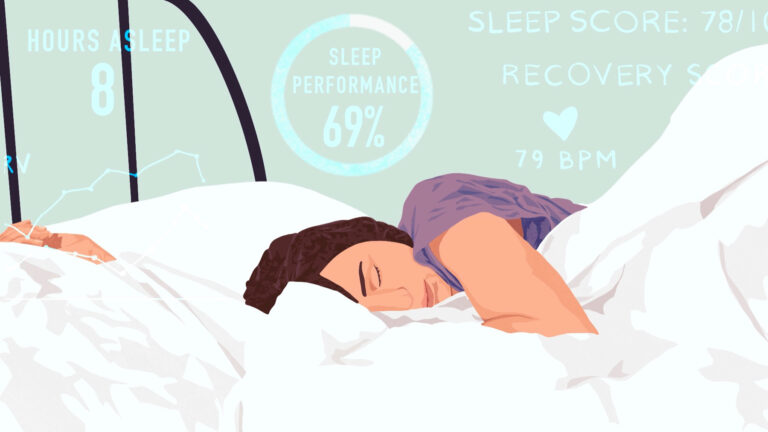The mental health crisis is redefining workplace wellness.
Top of Mind
According to US Surgeon General Vivek Murthy, mental health is the top issue facing the country, and employers should play a key role in providing a solution:
“Leaders must prioritize mental health in the workplace by addressing structural barriers to seeking help and decreasing stigma…”
Issuing a report on the topic, Vivek’s office said rates of stress and burnout have reached all-time highs among the nation’s workforce.
- 76% of US workers reported at least one symptom of a mental health condition.
- 84% of employees said work-related factors negatively affected their mental health.
- Poor worker mental health costs the US economy $48B annually in lost productivity.
In addition to improving public health, the report cites organizational performance as a motivating factor — with happier and more engaged workers leading to 23% higher profits.
Work-life wellness. According to new research from corporate well-being platform Gympass, employees aren’t willing to sacrifice health for work.
- 83% of employees believe their well-being is just as important as their salary.
- 77% say they would consider leaving a company that doesn’t focus on well-being.
- 85% of employees are more likely to stay at a company if their employer promotes well-being.
Signaling more changes to come, an Indeed-commissioned survey found that 50% of people believe their company isn’t doing enough to improve employee well-being and happiness.
New strategies. While most employers offer wellness benefits, many programs focus on smoking cessation, weight management, and lifestyle coaching.
But now, says benefits consulting firm NFP, companies are making changes:
- 55% of employers introduced virtual mental health resources over the past year.
- About one-third provide health coaching (35%) or in-office mental health resources (29%), and 22% invest in peer support groups.
Currently, companies spend $200–600 per employee for well-being benefits. But over the next year, half of employers plan to increase their investment by 5–25%.
Bottom-Up Growth
Targeting employers, a number of mental health platforms like Lyra Health, Modern Health, and SonderMind have achieved multi-billion-dollar valuations.
Moving in, consumer-facing health and fitness brands are selling themselves as enterprise solutions. Of note, companies initially focused on athletic performance, fitness, and weight loss are expanding into mental wellness.
- After introducing a mental well-being program, diet app Noom recently rolled out a B2B service.
- Exos unveiled The Game Changer, a workplace wellness program to prevent employee burnout.
- After acquiring mindfulness company Core, Hyperice launched a corporate wellness offering.
- WHOOP debuted Unite, using the company’s wearable to help employers manage mental and physical stress.
Meanwhile, mindfulness companies Calm and Headspace are pivoting from DTC content to healthcare and corporate sales.
B2B2C. As Andreessen Horowitz points out, healthcare companies are running the bottom-up playbook perfected by SaaS startups.
But now, seeking new, more sustainable growth channels, wellness-focused companies are leveraging traction among consumers to win over employers and insurers.
With consumers and corporations embracing holistic wellness, brands see employer deals as a path to better margins, lower acquisition costs, and more predictable revenue.
Looking ahead: As the definition of wellness evolves, and a healthier workplace becomes essential to well-being, expect to see more DTC brands pursue B2B partnerships. But first, they’ll have to reach a critical mass of loyal consumers who can press HR to pick up the tab.
💳 Sweat to Save
As America’s health suffers, stoking lifestyle change hasn’t been easy.
On the Fitt Insider Podcast: Ness founder & CEO Derek Flanzraich discusses his company’s wellness rewards credit card.
We also cover: wellness spending by the numbers and addressing misaligned incentives in healthcare.
Listen to today’s episode here
🍔 Leading US food and beverage companies fail to introduce healthier options
The modern American diet is killing us, and Big Food isn’t helping.
According to the latest US Access to Nutrition Index, the combined portfolios of the nation’s 11 largest food manufacturers “have not become healthier.”
With combined sales reaching $170B last year, nearly 70% of the products sold were unhealthy.
- Only 29% of products were deemed “healthy,” with the majority having too much added sugar, salt, and fat and too little vegetables, fiber, or whole grains.
- Conagra (49%) Campbell (48%), and Nestlé (36%) received the highest percentage of sales from “healthier” food.
- Mars (13%), Kellogg (17%), and Unilever (19%) received the lowest.
All talk. Courting health-conscious consumers, brands have taken steps to restore their images — reducing sugar, going plant-based, and buying up vitamin companies.
In particular, Nestlé has made a number of nutrition-focused acquisitions. But, as a leaked report acknowledged, 60% of its products don’t meet “a recognized definition of health.”
Similarly, Unilever’s strategy has been criticized for using internal metrics to gauge healthiness. By its own measure, 63% of its products are healthy. Under independent scrutiny, just 17% make the grade.
Looking ahead: Calling on Big Food to help combat the rise of diet-related chronic illnesses, the report recommends “urgent attention” across product innovation, reformulation, and marketing spend in order to overhaul nutritional quality.
For now, even though more companies are touting better nutrition as part of their corporate strategy, few have translated those commitment into concrete actions.
Share this headline
📲 Strava syncs with Snapchat to make activity tracking more social
Snapchat unveiled a Strava Activity Lens. By linking a Strava profile with a Snapchat handle, workouts are available to share as an overlay to photos and videos.
Additional features include… sharing a slideshow from your camera roll through Memories, with the ability to narrate over each clip. Snapchat has also enabled a recording lock, allowing users to capture the moment hands-free (i.e. mounted on a bike or “selfie” stick).
Why it matters: While photo and video sharing is already a part of Strava, the partnership aims to take Social+ Fitness to the next level.
Turning its 100M registered users into billboards for its app, workouts logged on Strava will now be engaging, story-like content for Snapchat’s 363M daily active users.
While there’s likely some overlap between Strava and Snap users, by enabling sharing beyond its own ecosystem, Strava is courting a new audience while reaching existing users on a new channel.
Pedaling content. In March, Strava inked a “storytelling” partnership with the Tour de France. In addition to in-broadcast exposure, Strava CEO Michael Horvath said the company successfully tapped elite cyclists for inspiring, first-person content.
“In 2022 alone, we saw 80% of the men’s peloton and 89% of the women’s peloton upload their race stages to Strava for fans around the world to follow.”
Turning workouts into content, its Tour de France deal and new Snapchat Lens aim to boost engagement by adding a whole new element to the community’s phrase “Strava or it didn’t happen.”
What to watch for: Leveraging its recent integration with Oura, biometric data—from max heart rate to stress levels—could become the next photo overlay. What’s a privacy concern to some would be a hyper-personal flex for competitive athletes and everyday exercisers alike.
Share this headline
📰 News & Notes
- Quest tests fitness with new blood panels.
- WHOOP collabs with TYR on smart swimwear.
- Peloton misses earnings, settles suit with Echelon.
- Daily Harvest’s sales fall by half since product recall.
- NASM, Trifecta partner for modern nutrition education.
- DICK’S Sporting Goods launched a $50M fund to back sports startups.
- Startup Q&A: Wondermed’s Ryan Magnussen on at-home psychedelic therapy.
- Fitt Jobs: New opportunities with industry-leading health & fitness companies.
💰 Money Moves
- AI-enabled digital MSK platform Exer added $6.5M in a funding round.
On the Pod: Exer CEO Zaw Thet - Tiny Health, a microbiome testing platform for mothers and infants, secured $4.5M in a funding round led by TheVentureCity.
- Revero, an AI-driven food-as-medicine startup, pulled in $5M in a seed round.
More from Fitt Insider: Food as Medicine - Swap Health, a digital food-as-medicine platform for low-income individuals, launched after receiving undisclosed funding from 25m Health.
- The Sleep Company, an Indian DTC sleep tech company, secured $21.3M and will expand to Europe.
More From Fitt Insider: The Sleep Economy - BookOutdoors, a booking site for campgrounds, secured $4M in a seed round led by GreatPoint Ventures.
More from Fitt Insider: Camping x Tech - Netherlands-based health club operator Urban Gym Group acquired Fitness Center IJburg and rebranded it to TrainMore Black Label.
- Floreo, makers of a VR therapeutic for autism and other behavioral health disorders, raised $10M in a Series A led by Tenfore Holdings.
- UK-based pediatric behavioral health platform Healios raised £14M ($15.8M) and will expand in the US via its subsidiary Meliora.
- UK-based chronic pain management platform Leva raised $3.5M and will expand research for cannabis-based therapeutics.
- Teletherapy platform Wellin5 closed $2M in an oversubscribed seed round.
- Recording artist Jason Derulo acquired a “significant stake” in TREO, a functional birch water brand.
More from Fitt Insider: Functional Beverage Boom
Today’s newsletter was brought to you by Anthony Vennare, Joe Vennare, and Ryan Deer.






